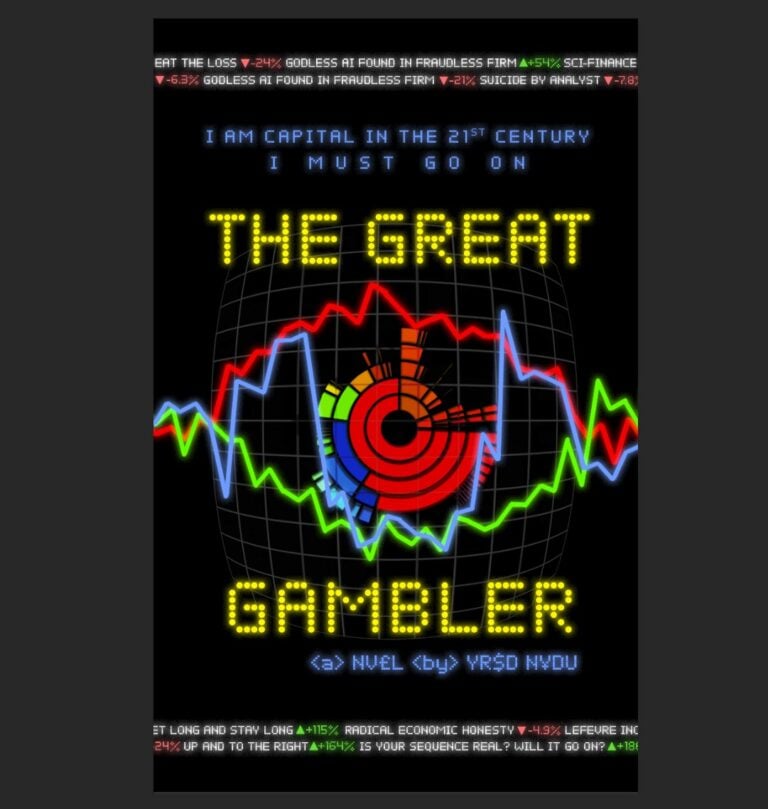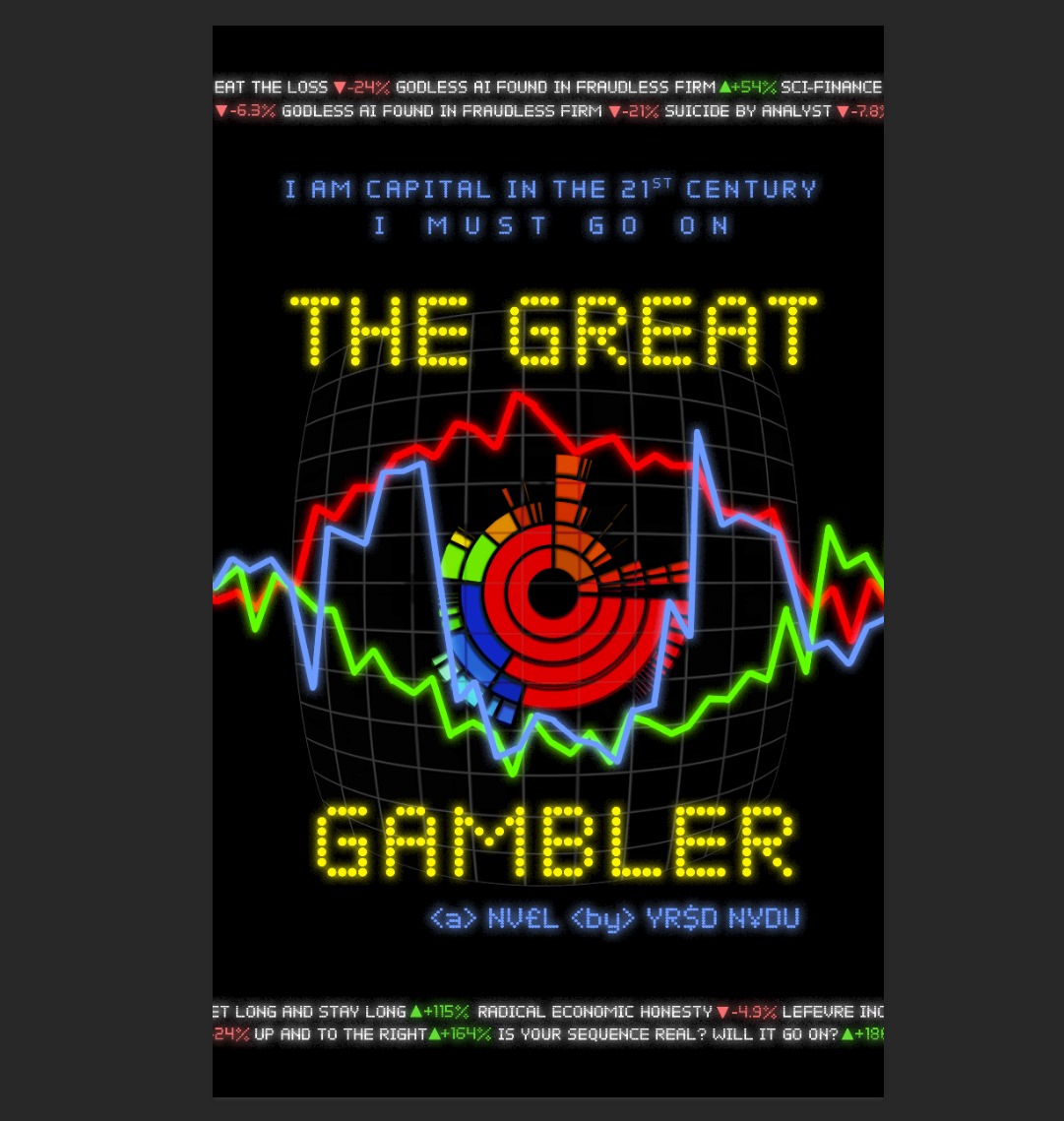The “Analyst” has made one bad bet too many, resulting in a catastrophic loss. Now, out on a limb, the analyst has to take up a job offer from the mysterious LeFevre, a staggeringly successful investor. The analyst interacts with LeFevre remotely and must succumb to the bizarre whims of this “continental gentleman” who refers to himself as a “quantitative.” While the analyst struggles to fathom the financial strategies of LeFevre, another investigation into him begins. It involves an interrogator, an auditor, and a newspaper critic whose name bears an uncanny resemblance to that of the author. What is the truth behind LeFevre, and is he human or something more?
After a bright opening that promises a kind of hi-tech, high-finance, futuristic thriller, THE GREAT GAMBLER eventually reveals itself to be a clever (though ultimately frustrating) investigation into the theories of investment, the manipulation of the market, and the unstoppable, avaricious materialism of late-stage capitalism. As LeFevre states on more than one occasion, “I am capital in the twenty-first century. I must go on,” and it is the theoretical nature of money that is the focus of Nydu’s story—rather than any insight into character or human interactions. Indeed, many of the characters in the novel are mere ciphers: the protagonist, referred to only as “The Analyst”; the unnamed “Interrogator”; the critic named as Yorsad Nayadu, a name that’s only a couple of vowels away from the self-proclaimed “ghostwriter” of this work; etc. Indeed, Nayadu reveals he is working on something called “The Great Gambler,” which he describes as a work of fiction. Elsewhere, there are appearances from real world physicists and biologists (including Darwin and Schrödinger) as the work edges into evolutionary theory and quantum mechanics.
Many of these theoretical diversions are thought-provoking and could prove fascinating for any reader with more than a passing interest in economics. For the general reader, though, the experimental nature of the text, the random jumps into capital letters, and the sudden appearance of verbatim interviews (whether these are in analepsis or prolepsis is never made clear) rather stall any engagement in the ongoing narrative.
In some ways, this is a shame. Nydu shows frequent flashes of inventive, evocative prose: the old tower blocks of Manhattan described as “midtown sky-slither,” the floor of a rundown office block as a “middle finger of brown-rust carpet,” a multi-screen trading terminal rising “like a trophied antler.” The early chapters set up expectations for a mystery thriller set in the near future, but as the book progresses, the intrigue is replaced by ambiguity, self-indulgent literary tricks, and willful obfuscation. Though LeFevre, when in conversation with a quizzical Analyst, tells him, “You should not assume to understand…the nature of my experiment,” a reader might expect to eventually get a little clarity. But by the end of THE GREAT GAMBLER, there are still more questions than answers. In the end, the novel hinges on metatextual experimentation rather than drama, and academic engagement eclipses any emotional connection.
THE GREAT GAMBLER is a futuristic financial mystery where author Yrsd Nydu is more interested in exploring the theories of late-stage capitalism than in investing the book’s characters with any realistic human attributes.
~Kent Lane for IndieReader


